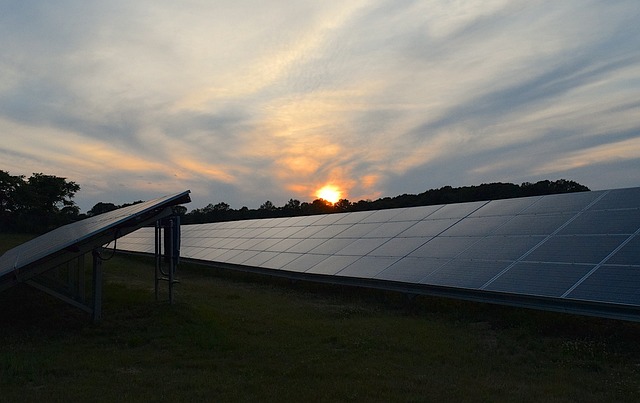Solar power presents a transformative solution for global energy needs, offering a renewable, abundant, and sustainable alternative to fossil fuels. Recent advancements have significantly enhanced the efficiency and lifespan of solar panels, making them an increasingly cost-effective and reliable source of energy. By generating electricity directly at the point of use, solar power not only promotes energy independence but also shields consumers from the volatility of external energy markets. Its adoption is a step towards mitigating climate change by reducing greenhouse gas emissions and offers economic benefits such as lower energy costs and job creation within the industry. Solar energy's scalability makes it suitable for both individual homes and large-scale installations, complementing other renewable sources to create a diversified and robust energy system. This clean technology not only addresses ecological concerns but also positions communities and nations towards long-term energy security and sustainability. Investing in solar power is indicative of a commitment to addressing environmental challenges and supports the global transition to greener practices for future generations.
As the world grapples with the dual challenges of energy security and climate change, solar power emerges as a beacon of sustainable innovation. This article delves into the multifaceted benefits of transitioning to solar energy, offering insights into its role in achieving energy independence, economic advantages, and environmental preservation. From the individual homeowner to large-scale businesses, understanding how solar power can be customized to meet diverse needs is pivotal. We explore the economic incentives, technical aspects, and real-world success stories that underscore solar energy’s potential. Furthermore, we examine the critical role of battery storage in optimizing solar benefits and the environmental and health advantages it offers over traditional energy sources. As global efforts continue to expand solar power accessibility, this guide serves as a testament to the bright future solar energy holds for a cleaner, more resilient planet.
- Maximizing Energy Independence with Solar Power: A Comprehensive Guide
- – The Rise of Solar Power as a Renewable Resource
Maximizing Energy Independence with Solar Power: A Comprehensive Guide

Solar power presents a transformative opportunity for energy independence, allowing both households and communities to reduce reliance on fossil fuels and grid-based electricity. By harnessing the sun’s abundant energy, users can generate clean, renewable power directly on their property. This decentralization of energy production is a significant step towards self-sufficiency, as it minimizes the impact of external factors such as fuel price volatility and supply chain disruptions. Moreover, the technology behind solar panels has advanced significantly, making them more efficient and durable than ever before. As a result, individuals and businesses can take control of their energy needs, reducing electricity bills and increasing resilience against power outages. The process of transitioning to solar power not only empowers consumers with greater energy autonomy but also contributes to a sustainable future by decreasing greenhouse gas emissions associated with traditional energy sources. Investing in solar technology is more than an environmental choice; it’s a strategic move towards long-term energy security and independence.
– The Rise of Solar Power as a Renewable Resource

The advent of solar power has marked a pivotal turning point in our approach to energy consumption. As traditional fossil fuels face scrutiny for their environmental impact and dwindling availability, solar power emerges as a sustainable and abundant alternative. The technological advancements in photovoltaic cells have significantly increased the efficiency of solar panels, making them more accessible and cost-effective than ever before. This renewable resource harnesses the power of the sun, converting it into electricity that can be used to meet a wide range of energy needs. The rise of solar power is not just a response to environmental concerns but also an economic opportunity. It offers energy independence, reduces utility bills, and stimulates job creation in manufacturing, installation, and maintenance sectors. As global leaders and communities invest in this clean technology, the potential for solar power to reshape our energy landscape is becoming increasingly evident.
Moreover, the scalability of solar installations, from small residential rooftop setups to vast utility-scale solar farms, underscores its adaptability across different regions and demographics. The integration of solar power is also facilitated by its complementarity with other renewable sources, such as wind and hydroelectric power, fostering a diversified energy mix that can provide a more consistent energy supply. The benefits of solar power extend beyond environmental preservation; it represents a significant step towards a sustainable future, offering a pathway to reduce greenhouse gas emissions, combat climate change, and ensure long-term energy security for generations to come.
solar power emerges as a pivotal choice for energy autonomy, offering substantial environmental and economic advantages. By integrating this clean, abundant energy source, communities and households alike can significantly reduce their reliance on fossil fuels, contributing to a healthier planet and a more sustainable future. The rise of solar power underscores its role as a key player in the global shift towards renewable energy, making it an attractive option for those looking to harness the sun’s potential. As the technology advances and becomes increasingly accessible, adopting solar power is not just a smart investment but a responsible step towards a greener world.
